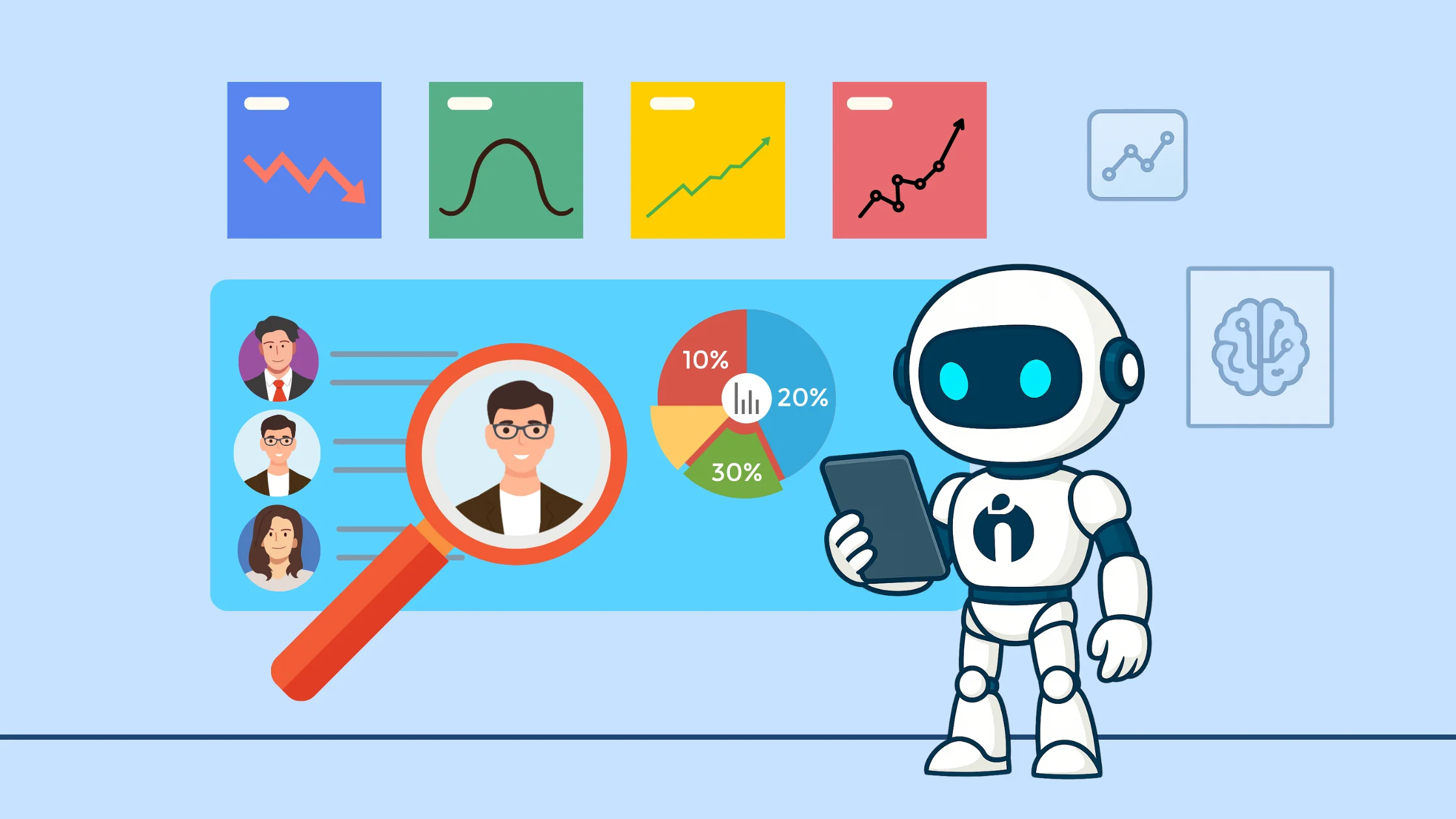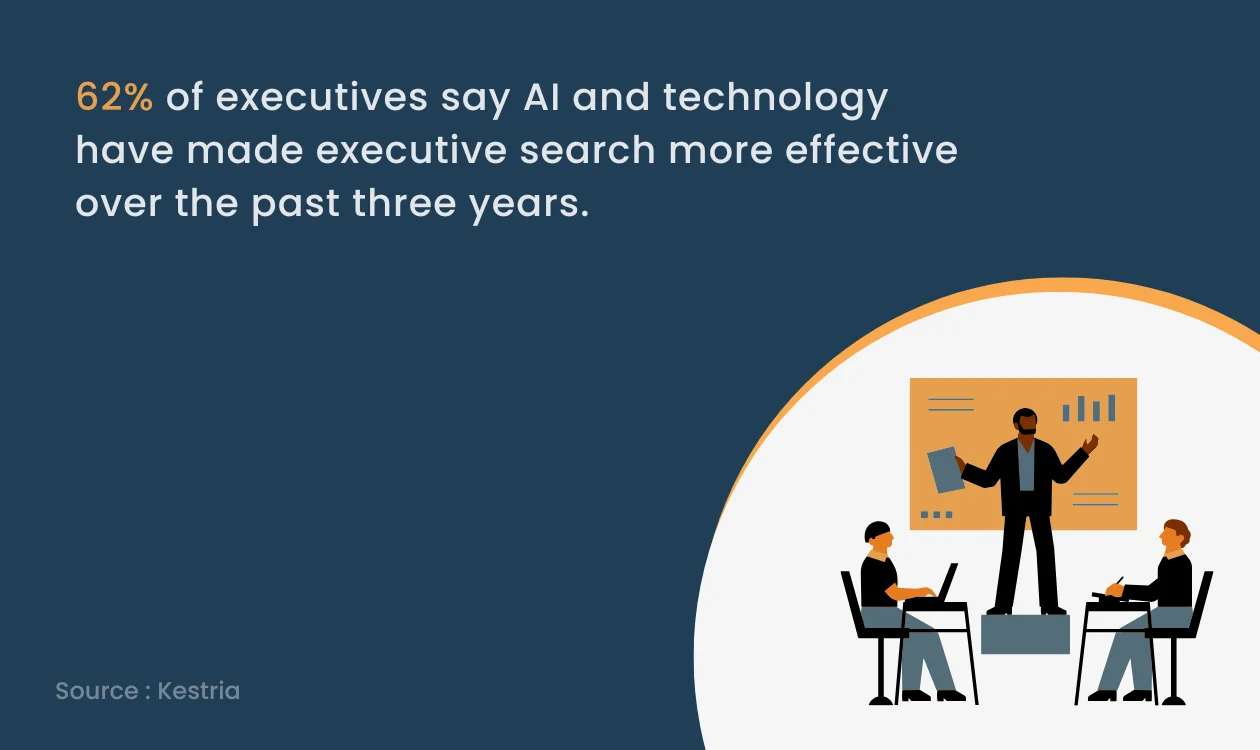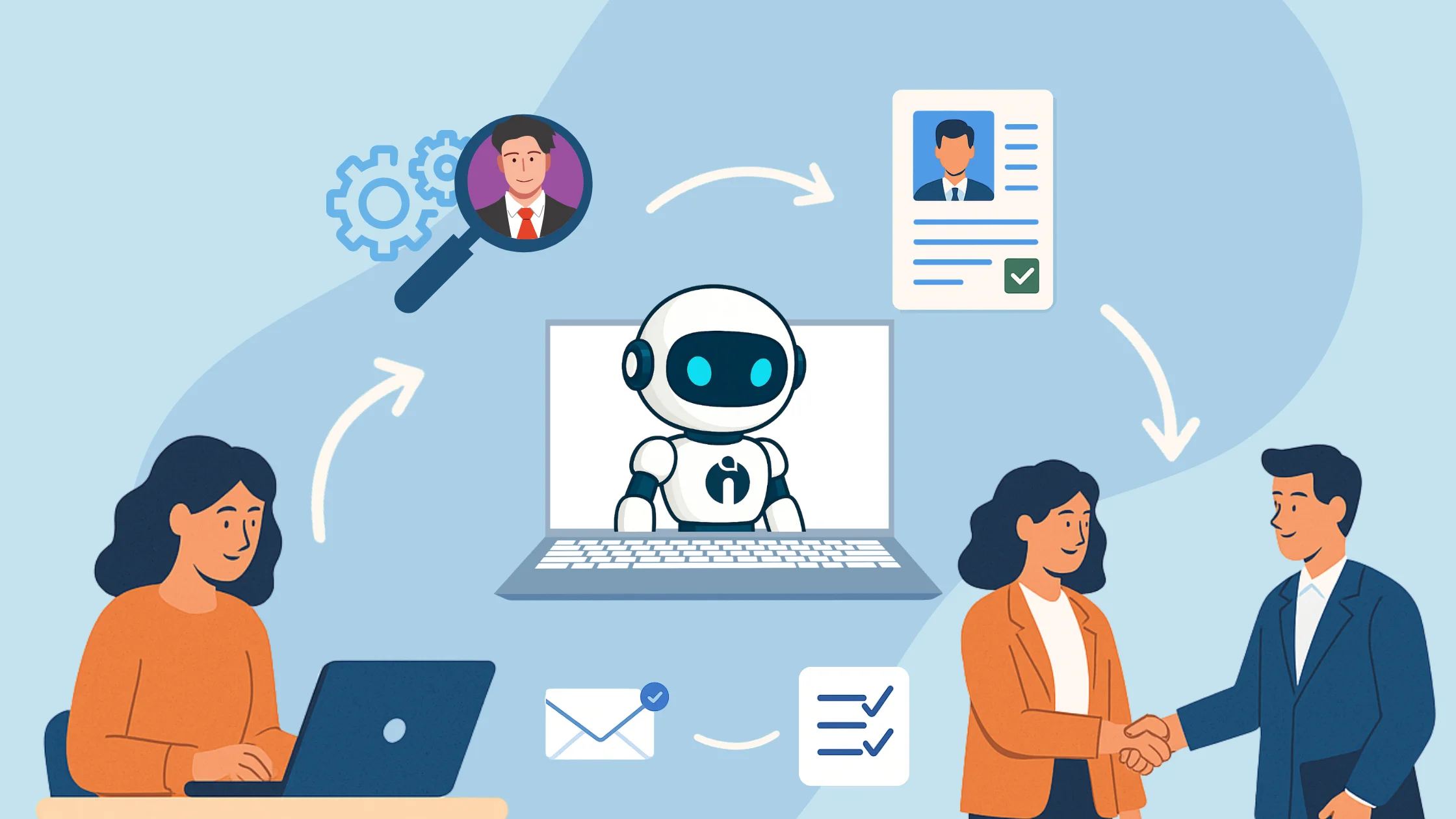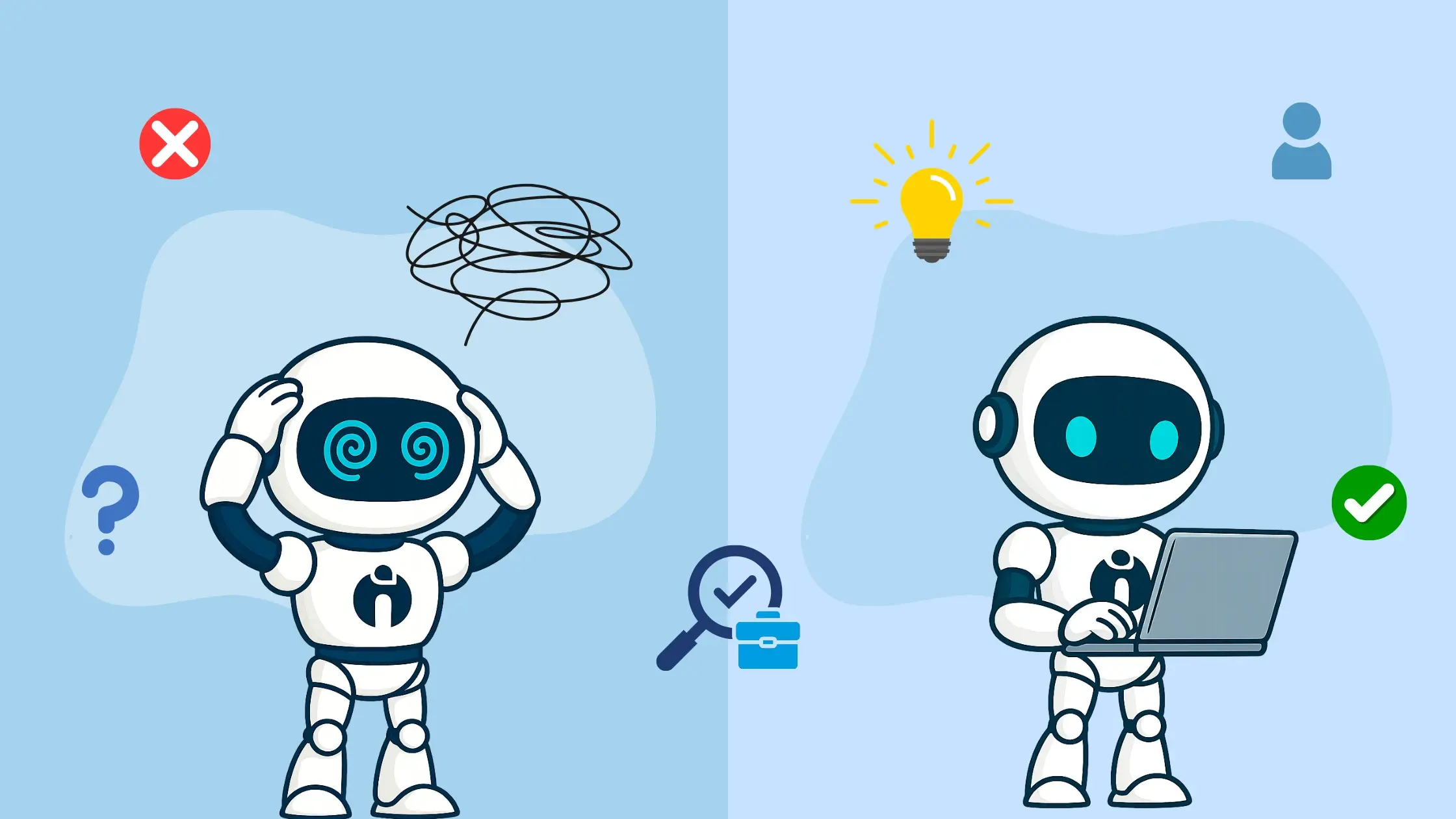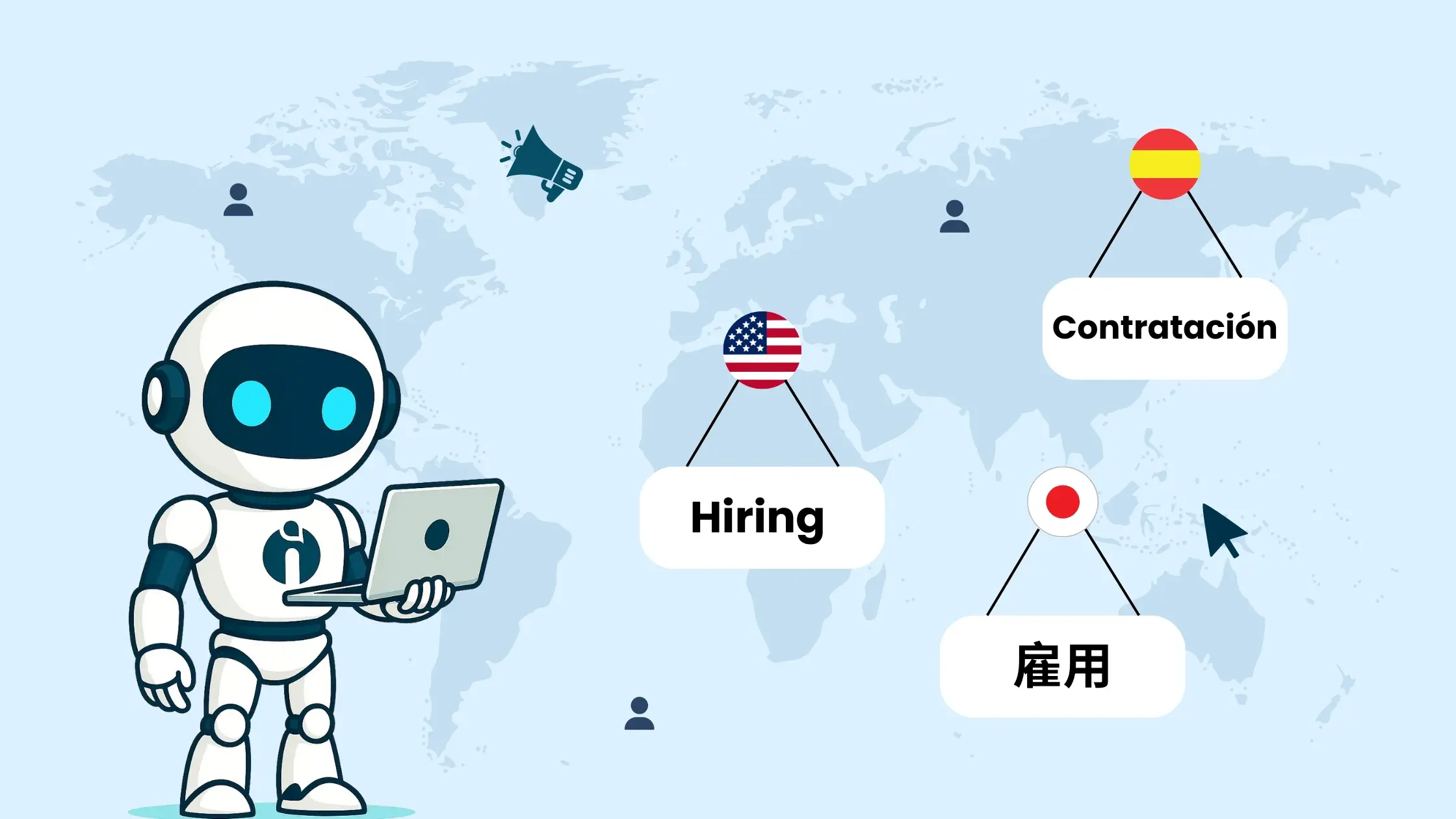Executive recruitment is evolving faster than ever. Organisations today face increasing pressure to find top leadership talent quickly and efficiently, while ensuring hires are the right fit for their culture and strategy. Traditional methods like networking, referrals, and headhunting often take months, and in that time, the best candidates may already be off the market.
This is where AI recruitment agents transform executive search, helping recruiters work smarter. By using AI in executive search, companies can now source, assess, and connect with the right leaders more efficiently, while reducing bias and improving candidate experience. These tools don’t replace recruiters; they enhance their capabilities, making the search process faster, more accurate, and more strategic.
TL;DR
- Executive Search Challenges: Hiring senior leaders is competitive, time-sensitive, and requires the right cultural and strategic fit. Traditional methods are slow and limited.
- AI’s Role: AI tools streamline sourcing, screening, matching, and predictive analytics, making executive search faster, more accurate, and data-driven.
- Efficiency & Quality: Time-to-hire is reduced, repetitive tasks are automated, and candidates are evaluated objectively, improving fit and diversity.
- Empowering Recruiters: AI complements human judgment, allowing recruiters to focus on leadership assessment, strategy, and candidate engagement.
- Future Outlook: The best executive search combines AI insights with human expertise, balancing speed, accuracy, and intuition for smarter hires.
Why AI Recruitment Agents Are Transforming Executive Search
The rise of AI recruitment agents is not just a technological trend; it is a response to several critical market forces:
- Market pressures: Organisations need to make faster, smarter hiring decisions to maintain a competitive edge. Delays in leadership recruitment can directly impact strategic initiatives and business outcomes.
- Talent scarcity: Senior executive talent is limited, highly sought after, and often not actively looking for new roles. Reaching these candidates requires proactive sourcing beyond traditional methods.
- Digital transformation in HR: AI for executive search is reshaping recruitment by providing predictive insights, automating candidate sourcing, and enabling data-driven screening.
According to a recent report by Kestria, over the past three years, technological advancements and AI have significantly reshaped the executive search industry. 62% of respondents reported that these innovations have made executive search more effective, highlighting a clear consensus on the positive impact of AI and technology in identifying and securing top executive talent.
Traditional Executive Search: Challenges and Opportunities
For decades, executive search relied heavily on human networks and manual vetting. While expertise remains essential, traditional methods face notable limitations:
- Time-consuming processes: Identifying and vetting candidates manually can take months.
- Limited reach: Passive candidates, those not actively seeking new roles, often remain untapped.
- Subjectivity and bias: Human evaluators may unintentionally favour certain profiles, potentially overlooking the best talent.
- High operational costs: Extended search periods and reliance on manual processes increase recruitment expenditure.
These challenges create a clear opportunity for executive search automation. By integrating AI agents, organisations can accelerate the recruitment cycle, improve candidate quality, and maintain objectivity in hiring decisions. AI in staffing empowers recruiters to work smarter, not harder, and ensures that strategic hires are made efficiently.
How AI Recruitment Agents Transform Executive Search?
AI recruitment agents bring intelligence, speed, and predictive insights to executive hiring. Key capabilities include:
1. Candidate sourcing
AI agents scan multiple sources, professional networks, CV databases, social media, and industry publications to discover active and passive candidates who match the required profile. This eliminates manual searching and broadens the talent pool significantly.
2. Screening and matching
Using AI in executive search, candidates are assessed for skills, experience, leadership qualities, and cultural alignment. Algorithms can rank candidates based on relevance and predict suitability for the role.
3. Predictive analytics
Advanced AI models forecast candidate success, retention, and performance, helping organisations make strategic hiring decisions. This transforms executive recruitment from intuition-based to data-driven.
4. Automation
Repetitive tasks such as scheduling interviews, sending communications, parsing CVs, and preparing role profiles are handled automatically, freeing recruiters to focus on strategy and relationship-building.
Example: A recruiter seeking a CFO can use AI agents to identify highly qualified candidates across multiple industries, evaluate their experience and career trajectory, and shortlist the top three in a fraction of the usual time.
By integrating executive search software and AI-driven tools, recruiters can make data-backed decisions while maintaining a human touch for strategic evaluation.
Transforming Executive Hiring with AI Agents
The adoption of AI recruitment agents is changing the way senior leaders are hired:
- Speed and efficiency: Time-to-hire is drastically reduced without compromising candidate quality. Organisations can respond faster to leadership needs and strategic openings.
- Wider candidate pools: AI expands the reach to diverse and passive talent, ensuring that no qualified candidate is overlooked.
- Data-driven decisions: Insights from predictive analytics and AI scoring improve the fit between candidates and executive roles.
- Scalability: Both in-house HR teams and external executive search firms can scale operations without proportional increases in manpower.
- Enhanced candidate experience: Timely communication and personalised engagement enhance the employer brand and candidate satisfaction.
These capabilities not only improve efficiency but also support strategic workforce planning, ensuring organisations have the right leaders in place to execute critical business initiatives.
Why Recruiters Are Embracing AI Recruitment Agents
Recruiters are increasingly turning to AI as it transforms the way executive search is conducted. By automating repetitive tasks, providing data-driven insights, and improving candidate matching, AI empowers recruiters to focus on strategic decision-making and building strong leadership pipelines.
- Reduces manual workload: Automates repetitive tasks like CV screening, outreach, and interview scheduling.
- Standardises evaluations: Ensures consistent and fair assessment across candidates.
- Improves accuracy: AI-driven matching highlights candidates who best fit the role and organisational culture.
- Supports succession planning: Helps organisations identify future leaders and maintain a strong leadership pipeline.
By combining AI in executive search with human expertise, recruiters gain a competitive advantage, focusing on strategic hiring and candidate engagement rather than administrative work.
Integrating AI Recruitment Agents in Hiring
Integrating AI recruitment agents into executive search isn’t just about technology; it’s about creating a smarter, more efficient hiring process. When used thoughtfully, AI tools enhance recruiter performance while keeping human judgment at the centre of every decision.
1. Seamless Integration with Existing Systems
AI recruitment agents work best when linked with existing tools like your ATS, CRM, or executive search software. This integration keeps candidate data connected, reduces manual effort, and gives recruiters one central view of all activity.
2. Training Recruiters to Use AI Insights
AI delivers real value only when recruiters know how to use it. Training helps teams understand how AI evaluates and ranks candidates so they can confidently interpret insights and make better-informed decisions.
3. Balancing Automation with Human Judgment
AI handles repetitive tasks like sourcing and screening, freeing recruiters to focus on strategic work. Human expertise remains vital for assessing leadership qualities, personality, and cultural fit, areas where intuition matters most.
4. Phased Implementation and Measurement
Rolling out AI agents gradually helps ensure smooth adoption. Begin with a pilot project, gather feedback, refine the process, and then expand. Track results using metrics like time-to-hire, candidate quality, and recruiter productivity to measure true impact.
5. Building AI–Human Collaboration
The best results come from collaboration, not replacement. When recruiters use AI as a supportive partner, they can combine speed, accuracy, and human empathy, achieving better executive hiring outcomes overall.
Conclusion
AI recruitment agents are reshaping executive search, making leadership hiring faster, smarter, and more data-driven. They give organisations access to a broader talent pool, help improve the quality of hires, and streamline recruitment processes.
Human recruiters remain at the heart of hiring, using their judgment to evaluate cultural fit and build meaningful relationships. Solutions like iSmartRecruit, featuring AI agents such as the Executive Research Agent, demonstrate how technology can enhance executive search by providing intelligent candidate sourcing and actionable insights, all while supporting, not replacing human expertise.
The future of executive recruitment is about AI and humans working together. By combining the speed and precision of AI with recruiters’ experience and intuition, organisations can efficiently and strategically secure top leadership talent, staying ahead in a competitive talent market.
Frequently Asked Questions (FAQs)
1. What are AI recruitment agents in executive search?
AI recruitment agents are intelligent tools that automate tasks like candidate sourcing, screening, and matching. In executive search, they help identify senior leaders and decision-makers quickly while supporting recruiters with data-driven insights.
2. How do AI recruitment agents reduce time-to-hire?
By automatically scanning resumes, shortlisting top candidates, and predicting the best fit, AI recruitment agents can significantly cut the hiring timeline, often by up to 50% without compromising on quality.
3. Can AI improve candidate quality and diversity?
Yes. AI in executive search uses objective, data-driven criteria to evaluate candidates, helping reduce unconscious bias and expand the talent pool, which leads to higher-quality and more diverse leadership hires.
4. How do companies measure the effectiveness of AI in executive search?
Organisations track metrics like time-to-hire, candidate quality, retention rates, and diversity improvements. Successful AI adoption often results in faster placements, better matches, and improved overall recruitment efficiency.
5. Is using AI in executive search ethical and secure?
Yes, when implemented correctly. Reputable AI recruitment platforms comply with data privacy regulations, safeguard candidate information, and are designed to promote fair and unbiased hiring practices.







